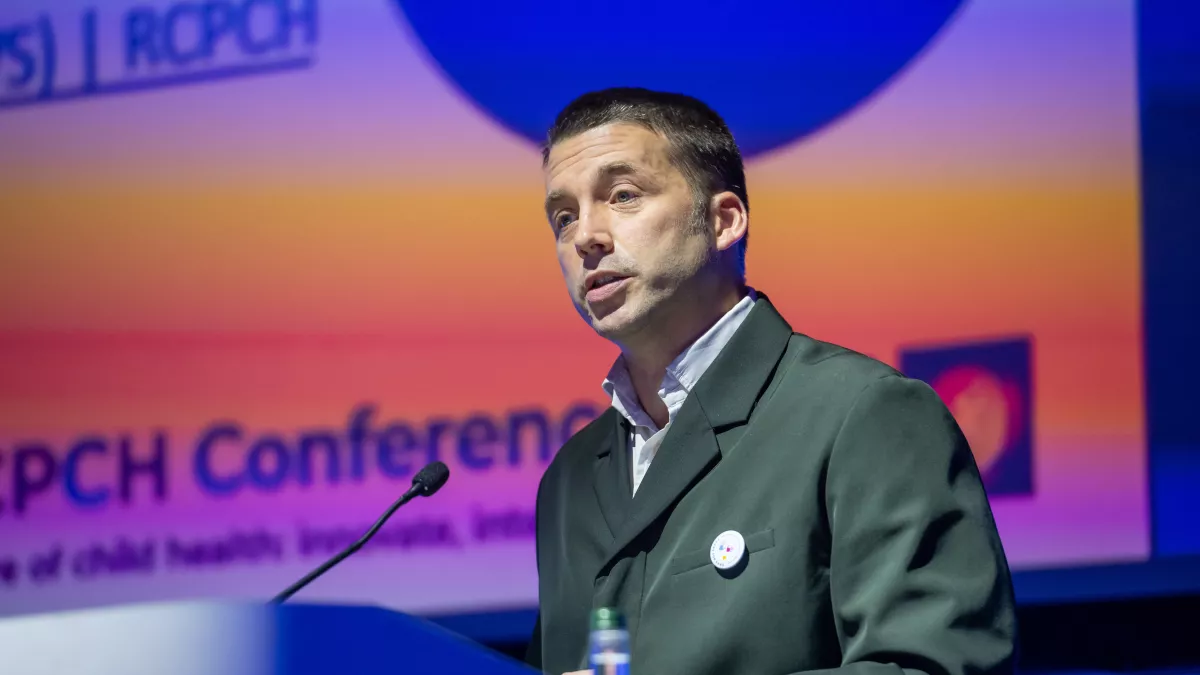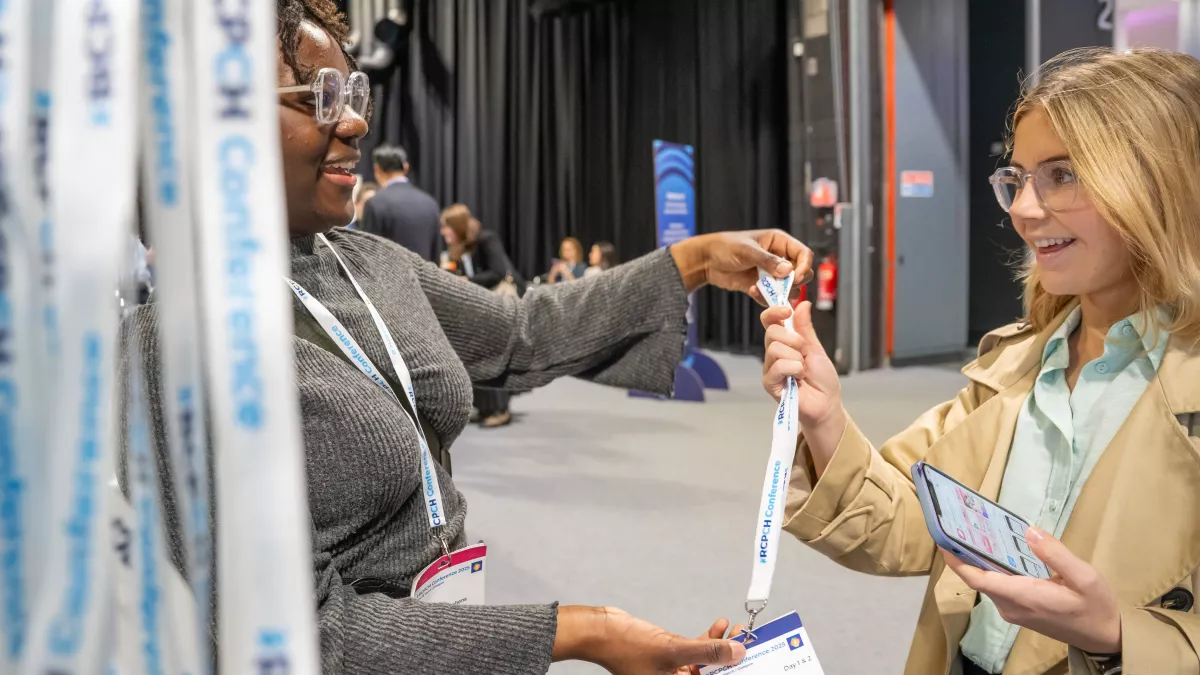
Keen runners gathered together to kickstart their day by joining in a 5km run led by former VP for Training and Assessment, Dr David Evans.
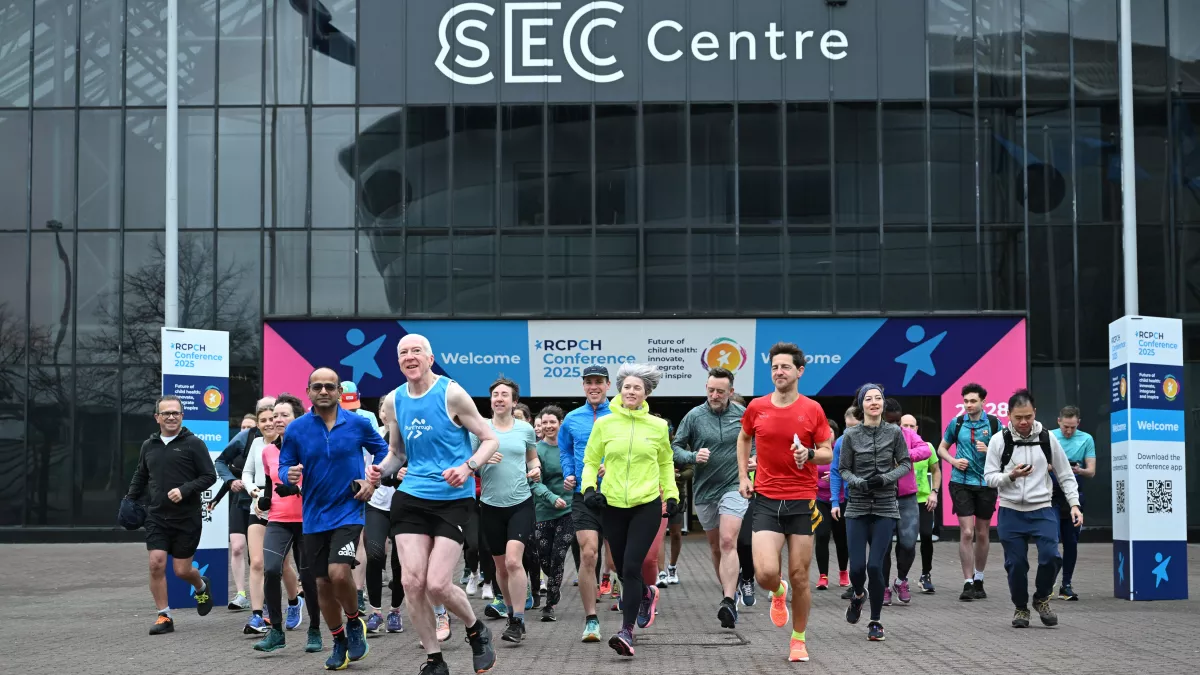
Dr Peter Lachman was today’s first keynote speaker and he called on the audience to help inspire a culture of patient safety, continuous learning and remembering the lessons from the past. He highlighted the range of work from the College including the fantastic patient safety portal and QI community.
His final take away was to say that “we need to inject patient safety into the genome from medical training onwards… it needs to be in the DNA of every clinician.”
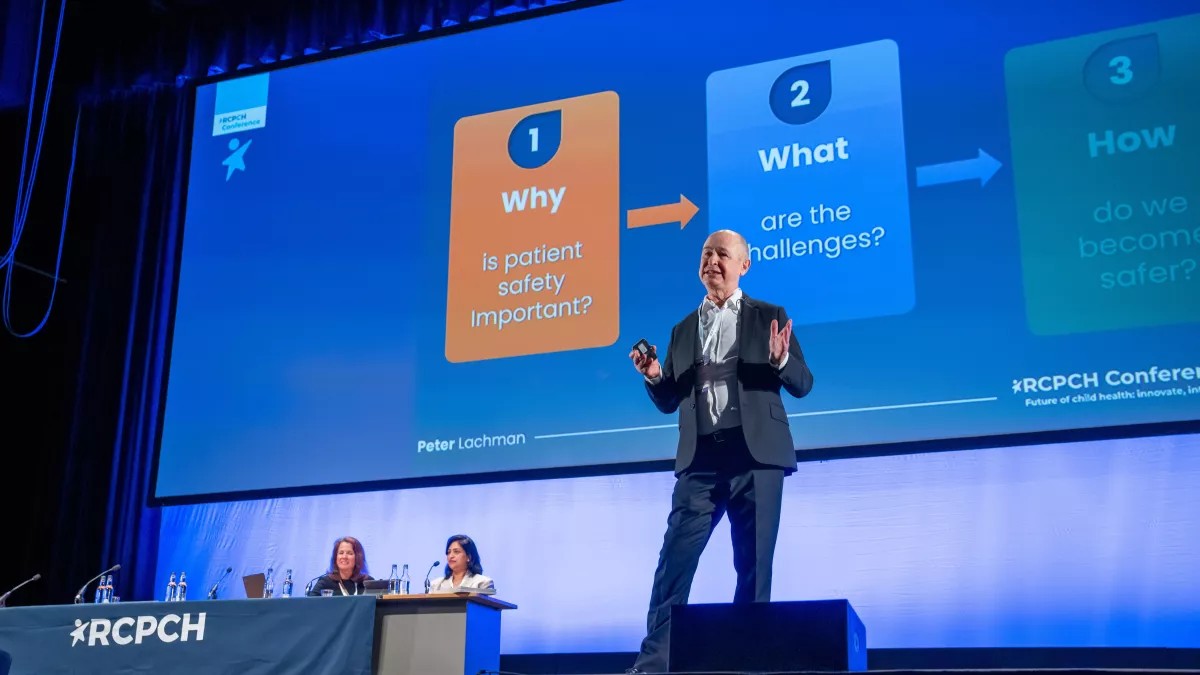
We welcomed 10 clinicians from Kenya, Pakistan, Rwanda and Nepal as RCPCH Visiting Fellows. Following the conference, they will each visit a UK clinical centre to develop their knowledge and exchange good practice - and drive improvements in care in their home settings.
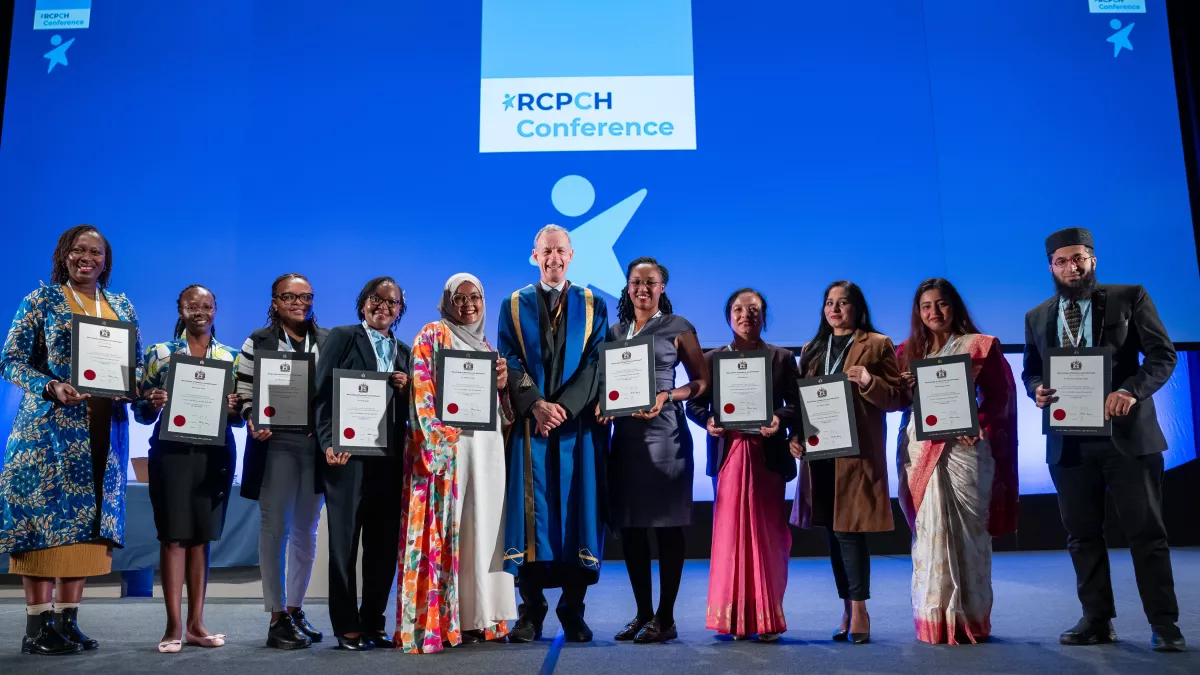
During the breaks, delegates were able to view the posters throughout the exhibition hall - both the physical posters and - new for this year! - on our ePosters screens. The posters are listed by specialty group, special interest group or other abstract category.
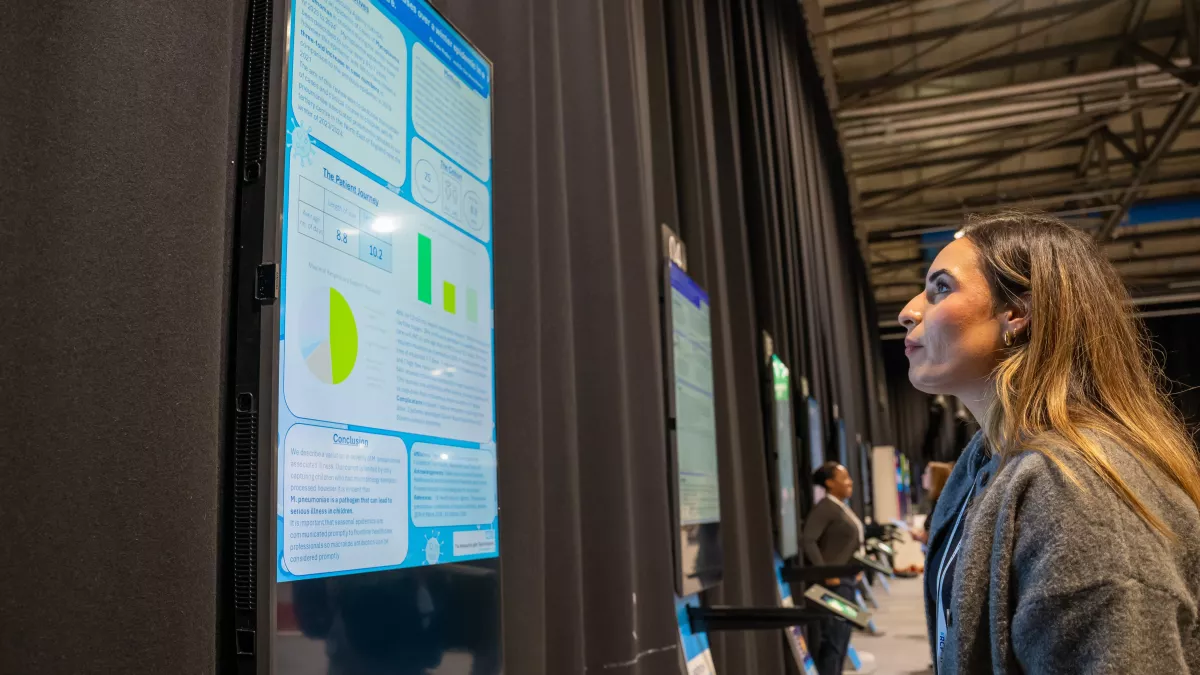
The interactive workshops continued throughout the day today, with topics including post-COVID, mental health and air pollution - with lots of participation from delegates.
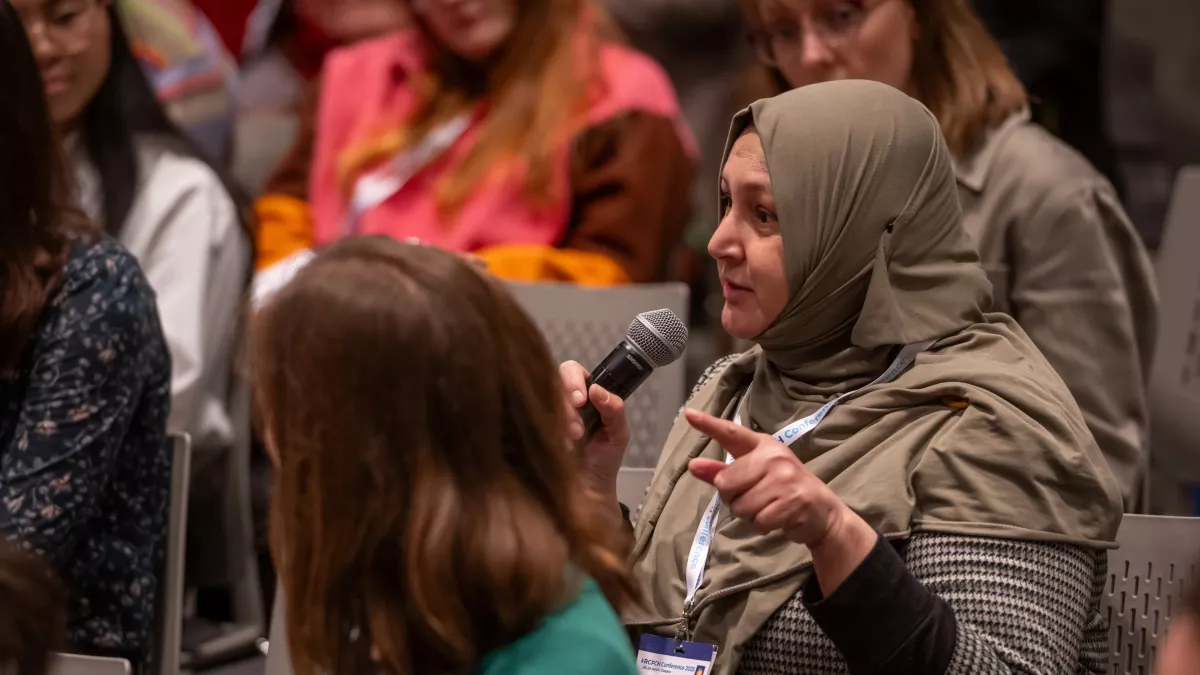
Our Education and Training division took over the RCPCH stand to showcase the latest in training, how to volunteer with us and more.
Each day we presented our Foundation Doctor prizes from the stand. Winners of our Medical Student prizes had joined us from Tuesday evening, when we presented their awards and enjoyed time getting to know each other.
Over in the #ChoosePaediatrics session, we heard presentations from the finalists for the Tony Jackson Memorial Prize in which both medical students and foundation doctors had submitted an essay about a personal experience in paediatrics.
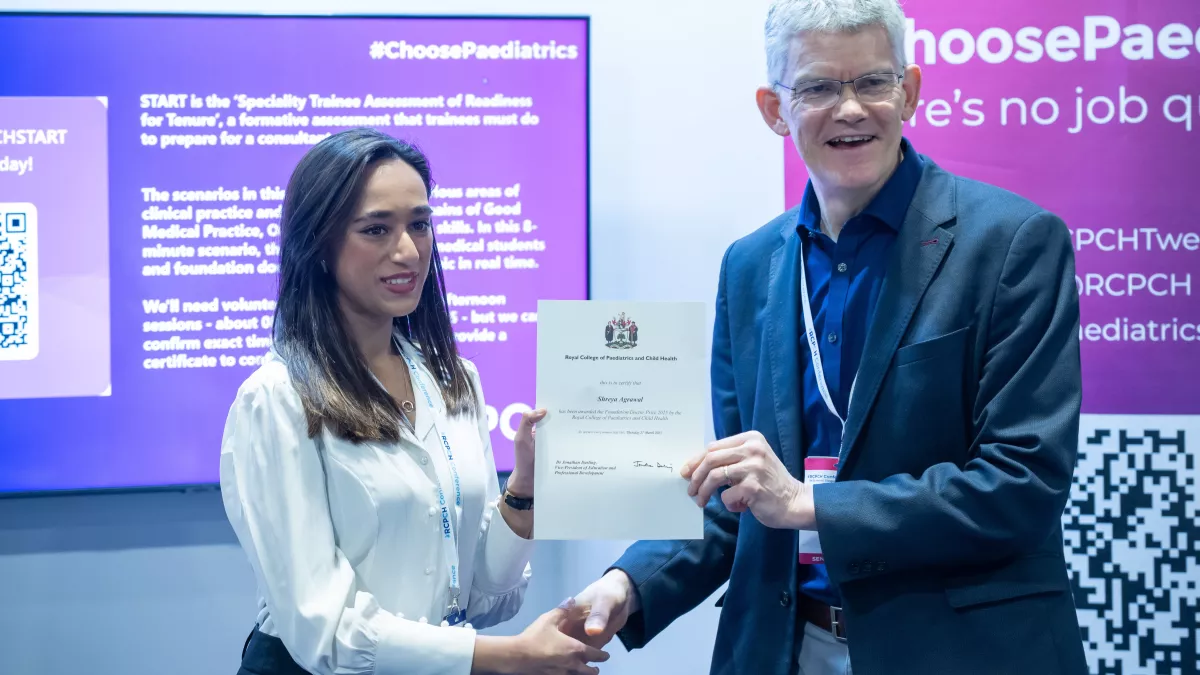
On the Rare Disease Hub, the British Paediatric Surveillance Unit highlighted its studies that have led to a greater understanding of the rare diseases as well as subsequent developments in healthcare practice and organisation.
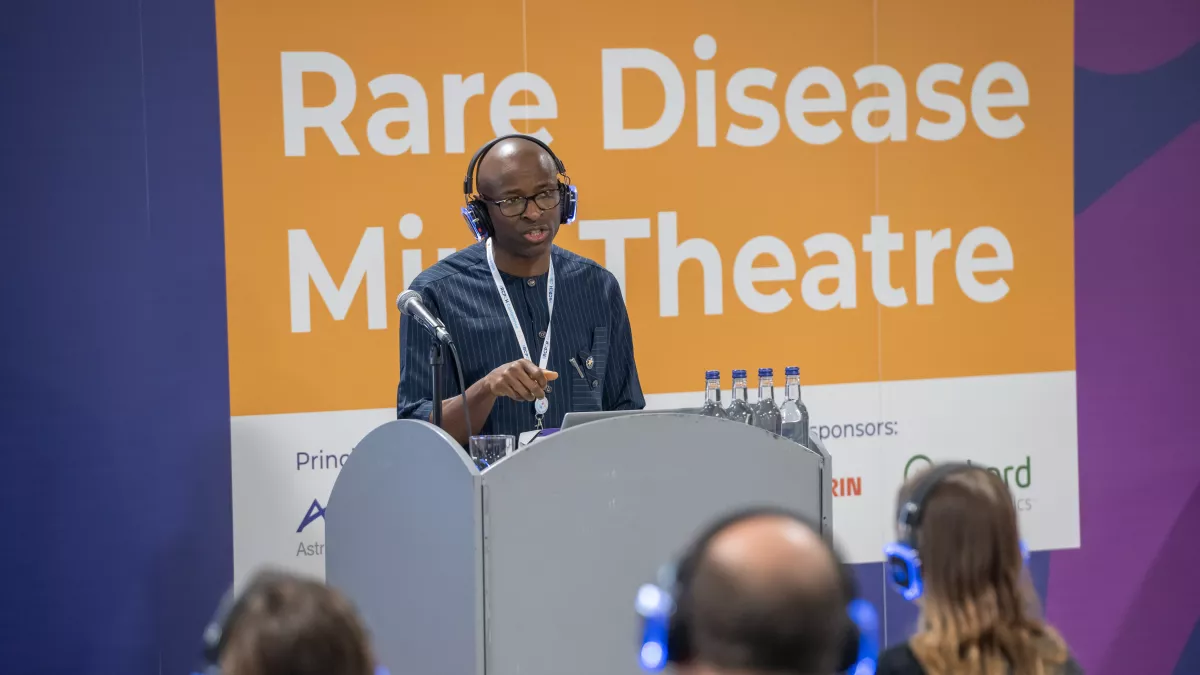
The specialty sessions continued, including groups such as Quality Improvement and Patient Safety, Down Syndrome Medical Interest Group, Equality, Diversity and Inclusion Member Reference Group (EDI) and so many more.
